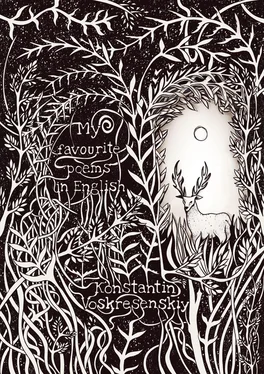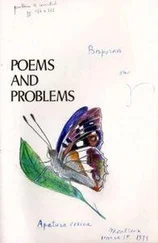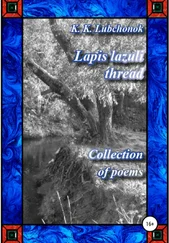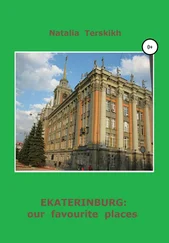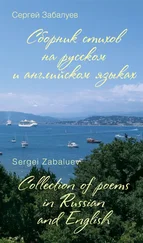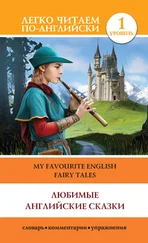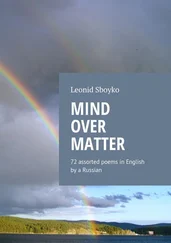Константин Воскресенский
My Favourite Poems in English
Compiled by the author from the forewords of his previous works.
From the first collection of poems «In Your Name» (Russian: Во имя твоё)
As Joseph Brodsky said: «Poetry is not the best words in the best order. It is the highest form of the existence of language…»
And at this moment, real, deep verse lines are born! It is when you are worried about something, when your soul is torn apart… and so I opened the book of Konstantin Voskresenskiy… It's like drinking spring water!
From the book «The Adventures of Kesha the Russian Boy» (Russian: Приключения мальчика Кеши)
Here there is curiosity, inquisitiveness, a thirst for knowledge, and attacks of negativity, the first feelings and the first disappointments.
From the book «Debate on Literary Analysis of Poems» (Russian: Диспут по литературоведческому анализу стихотворений)
Konstantin Voskresenskiy has the gift of igniting a fervent interest in the topic in which he is engaged, to make both himself and those involved in the process burn brightly. At the time of our nice acquaintance, it was only about editing a few of his works, which were included in the second book that was not be ready yet. But whether «COVID messed everything up», or something else, «The Tale of the Coronavirus» appeared, then a book of prose, then almost simultaneously two books of poems, and later two books of literary analysis one after the other. This is all thanks to Konstantin Dmitrievich's energy and enthusiasm.
From the book «Favourite Poems» (Russian: Избранные стихотворения)
This reading is food for the heart and mind, not just a means to achieve ambitious goals.
From the third collection of poems «The Dreamer» (Russian: Мечтатель)
Konstantin Voskresenskiy is a man, first of all, distinguished by courage and character. But in order to succeed as a writer it is necessary (as is well known) to preserve in the soul the childish feeling of an explorer and discoverer. This dialectical point is not always recognised by everyone, including, as often happens, by the author himself. But in the lines of his literary works, and sometimes between the lines, this feeling is easily calculated and deducted as good humour or a diligent, emphatically restrained ironic attitude to reality.
From the second collection of poems «In Jest or Seriously» (Russian: В шутку ли всерьёз)
The variety of topics and the way he approaches them is very characteristic of Konstantin's current mood. This can be said with confidence because the author is young; most of his life has taken place in the third millennium. He is open to the novelty of the era and is not heavily burdened with the established literary opinions and preferences. This poet is closer to individual and cultural freedom, which is imposed on us by the painful split of the renewing society.
From the book «Favourite Poems» (Russian: Избранные стихотворения)
The experience of working with Konstantin Voskresenskiy's poems can open up one's idle eye and ear to the wealth hidden beneath, which is full of the process of making modern poetry.
From the first special book «Literary Analysis of Poems» (Russian: Литературоведческий анализ стихотворений)
Mind needs mysteries uncovered,
It researches truth and lies.
Am I full of worth and power?
What's the World and who am I?
What is real and how's it real?
What's the aim to know this all?
Should we solve this complex riddle,
Just like children try to solve?
(poem «Mind needs mysteries uncovered…»)
With a healthy amount of optimism, this poem tells us that the world's accessibility and knowledge increase with us as we develop and grow up. This is done in the form of a rhetorical question that each of us can ask ourselves. In this way, in this brilliant octave, Voskresenskiy expresses the beauty of modern knowledge.
From the second special book «Literary Analysis of Poems II» (Russian: Литературоведческий анализ стихотворений-2)
Continuing the study of Voskresenskiy's poems, it is easy to come across moments of discoveries and failures that excite many writers, which negate or distort the artistic truth of word.
From the book «The Adventures of Kesha the Russian Boy» (Russian: Приключения мальчика Кеши)
It remains to be hoped that the future fate of Konstantin Voskresenskiy as a writer will develop in such a way that this, in my opinion, successful experience, will only be emphasized by subsequent successes on his literary path.
Signature
Sergey Smetanin, Member of the Russian Writers' Union (Russian: Сергей Сметанин, Член Союза писателей России)
(individual quotes from books: «In Jest or Seriously», «The Dreamer», «Favourite Poems», «The Adventures of Kesha the Russian Boy», «Literary Analysis of Poems», «Literary Analysis of Poems II», «Debate on Literary Analysis of Poems»).
Vadim Bakulin, Member of the Russian Union of Writers (Russian: Вадим Бакулин, Член Российского союза писателей)
(individual quote from the book «In Your Name»)
This interpreted poem is for my first book in English «The Adventures of Kesha the Russian Boy». It's a story about my childhood and coming of age, written from autobiographical material. Episode «2020. COVID-19.»
In English (interpretation by author):
Many are certain: «I'm writing like god!
Of wonderful heavenly moments I'm hunter!»
How to explain: he is only a wad?
It's of a preciousness impudent plunder!
Let we be judged by the soulless times.
Live our thoughts and a breath our sonnet!
Look for a worth among letters and lines:
Who is just garbage, who's a national poet…
In Russian:
Многие мыслят, что бог он и гений,
Ловкий охотник чудесных мгновений.
Как намекнуть, что он сильно не прав,
Снять с пьедестала зарвавшийся нрав…
Пусть нас рассудит бездушное время,
Вече народов, славянское племя.
Чуть различим среди строк силуэт:
Кто графоман, а кто Русский поэт…
From the first collection of poems «In Your Name» (Russian: Во имя твоё).
In English (interpretation by Lord Muck):
I want to say,
without making sounds:
day's time apart is
like a heavy round.
I want to see with
no words belong:
you wait for me;
your love is strong.
In Russian:
Хочу сказать,
не проронив ни звука,
как мне дневная
тяжела разлука.
Хочу увидеть
без лишних слов:
что ты ждала;
что сильна любовь.
Читать дальше
